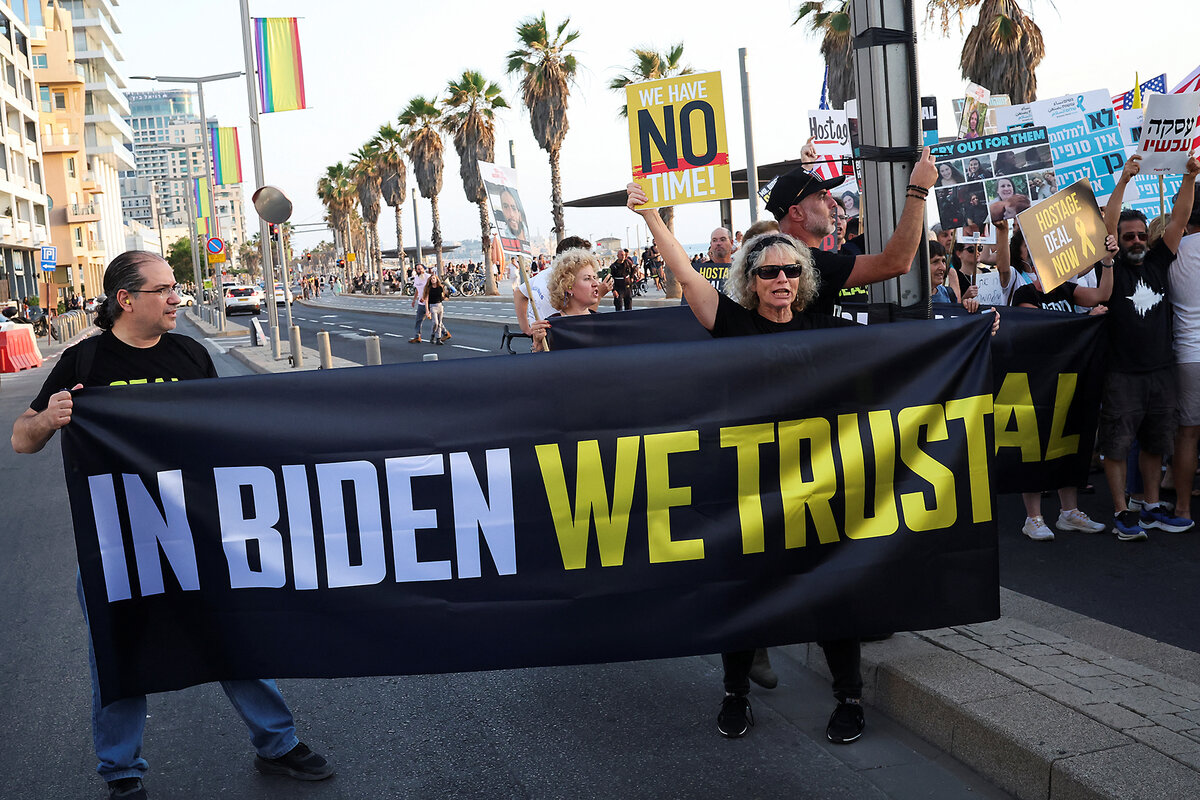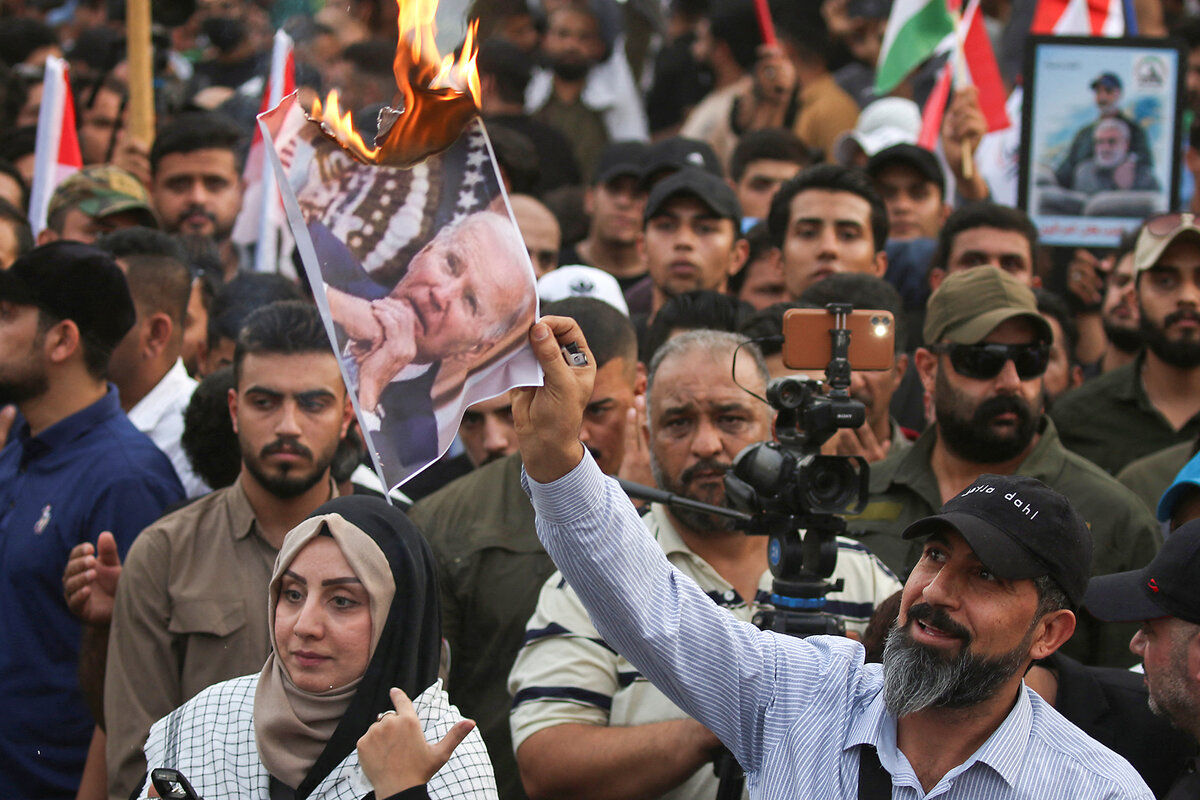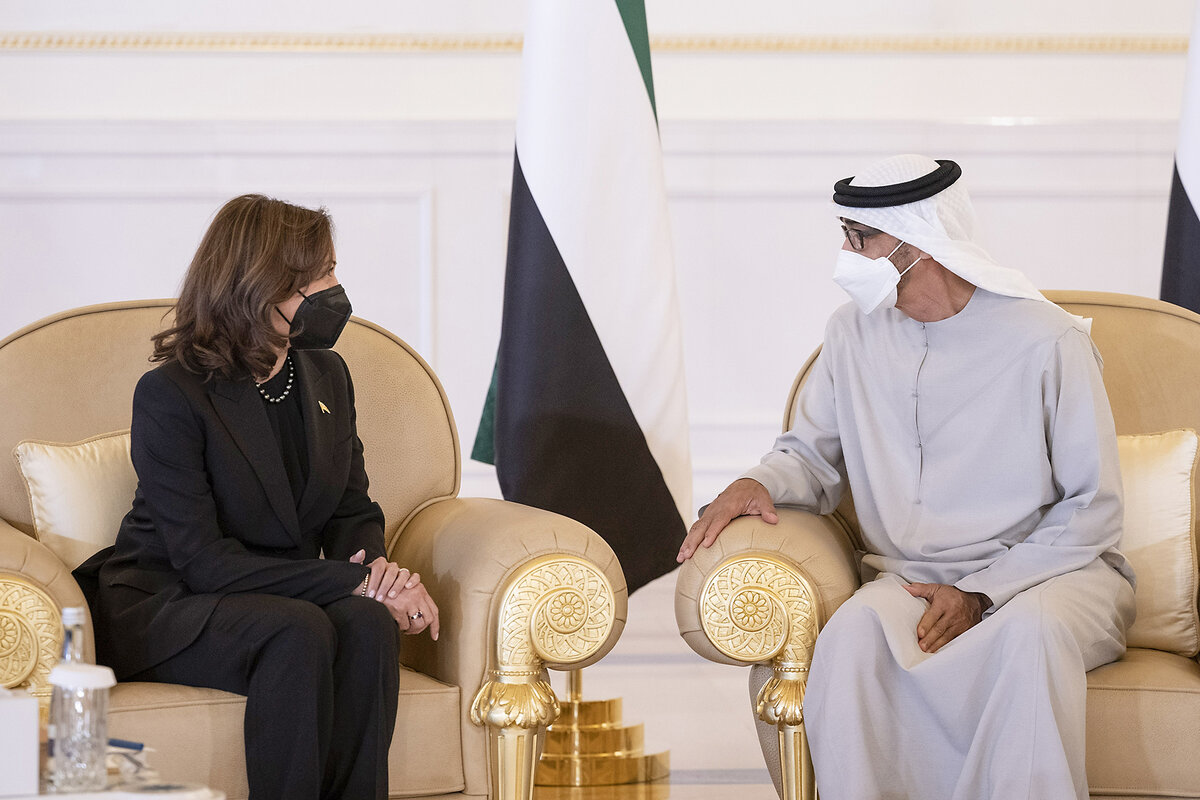World leaders recalibrate as they consider a Harris presidency
Loading...
| Amman, Jordan
Until last Sunday, governments and actors on all sides of the Middle East’s varied conflicts agreed on one thing: A second Donald Trump presidency appeared inevitable.
But this week’s arrival on the scene of Vice President Kamala Harris – a relative foreign policy unknown without the international relationships and experience of Mr. Biden or Mr. Trump – is forcing politicians in the Middle East and elsewhere in the world to ask themselves an unexpected question.
What would a Harris presidency look like from abroad?
Why We Wrote This
A story focused onA world that was increasingly anticipating a second Trump presidency is suddenly asking itself how a putative Harris administration might treat its allies and foes.
In the Middle East, a region at war whose players had planned their strategies for a Trump presidency with a Biden contingency, Ms. Harris’ emergence has them racing to recalibrate.
Ms. Harris’ background as a district attorney and prosecutor, with a strong sense of right and wrong that she is already playing up in her nascent campaign, makes her an unusual figure. She shares neither Mr. Trump’s transactionalism nor Joe Biden’s long history of internationalism.
A new view of Israel?
Vice President Kamala Harris’ Middle East experience is limited to two brief trips to the United Arab Emirates.
By comparison, when he took office, Mr. Biden had ties to the region stretching back 30 years. Mr. Trump has long had deep relations with Emirati and Saudi leaders.
Both men have also enjoyed decadeslong, sometimes fraught, personal relationships with Israeli Prime Minister Benjamin Netanyahu.
Mr. Biden’s withdrawal from the presidential race poses an immediate dilemma for Mr. Netanyahu, a polarizing figure both in Israel and in the United States, who is currently in Washington trying to polish his image.
Vice President Harris and President Biden will meet with Mr. Netanyahu in separate meetings at the White House on Thursday.
With the ascent of Ms. Harris, a vocal critic of the Israeli prime minister within the Biden administration, Mr. Netanyahu’s trip “playbook was ... ripped to shreds,” says Nimrod Novik, a fellow at the Israel Policy Forum and a former adviser to the late Israeli President Shimon Peres.
“Now, it is important for him to attempt to look Kamala Harris in the eye and assure her that he is not the Republican agent that everyone makes him out to be,” Mr. Novik adds.
The broad lines of Ms. Harris’ thinking are clear enough. She has repeatedly pledged her support for Israel’s security while criticizing Israel’s conduct of the war in Gaza and voicing empathy with the Palestinians, making her an outlier in the Biden administration.
The vice president was the first in the administration to call for a cease-fire, and the first to warn that Palestinians in Gaza were facing “famine conditions.” She argued earlier this year at the Munich security conference that “far too many innocent Palestinian civilians have been killed” and that “Israel must do better to protect innocent civilians.”
Pointedly, Ms. Harris declined to preside over Mr. Netanyahu’s address to Congress on Wednesday, preferring to attend a campaign event instead. A President Harris would be more willing to “speak the truth to the Israeli public” than President Biden, Mr. Novik believes.
But a shift in rhetoric alone is not enough for the Palestinians, eyeing the 2024 elections and seeing little policy daylight between Ms. Harris and a Biden administration they accuse of giving Israel a blank check for the war in Gaza that has killed tens of thousands of civilians.
The U.S. under Ms. Harris would need to “recognize its responsibility in supporting the occupation and to act decisively to halt the violence before it is too late,” insists Nabil Abu Rudeineh, the official spokesperson for the Palestinian Authority.
To stay or go?
Ms. Harris’ lack of experience in the Middle East and progressive slant are stoking concerns among Gulf states and some Israeli officials that a Harris administration could try to scale back U.S. diplomatic and military involvement in the region. They worry that a pivot from the region, following Barack Obama’s example, would be especially dangerous at a moment when many of them believe American involvement is crucial to prevent wider war.
“With the litany of challenges in Europe and at home, perhaps Ms. Harris will see the region as a burden on America and once again withdraw or pivot the U.S. away regardless of the consequences,” warns one Gulf Arab diplomat, who was granted anonymity because he was not authorized to speak to the press. “The region cannot afford that again.”
As a senator, Ms. Harris was critical of Saudi Arabia, voting to restrict arms sales to the kingdom. “We need to fundamentally reevaluate our relationship with Saudi Arabia, using our leverage to stand up for American values,” she said while campaigning for the presidency in 2020.
For Riyadh, “when it comes to Harris it will be somewhat of a fresh start,” says Aziz Alghashian, a Saudi analyst and fellow at the Arab Gulf States Institute in Washington.
But Saudi officials are holding out hope that Ms. Harris will “retain the alliance-building of the Biden administration,” he adds.
An urgency for peace
Facing the prospect of a Harris or a Trump presidency, an unknown quantity or an isolationist, Middle East actors are now in a diplomatic flurry to get what they can from a U.S. administration that is still heavily invested in the region.
Arab states and the European Union are accelerating efforts to formulate a Gaza peace plan they intend to present to the United Nations General Assembly in September, according to European and Jordanian diplomats.
Meanwhile, Arab states, Israel, and the U.S. are discussing plans for the governance and reconstruction of postwar Gaza, under which the Palestinian Authority and an international force would enter the strip.
Arab Gulf sources say that Saudi Arabia is speeding up its time line to secure a security treaty with Washington as part of a diplomatic normalization deal with Israel – a prized diplomatic goal of the Biden administration.
With the future uncertain, Riyadh would like to tie up the deal before President Biden steps down next January.
“It is becoming clear we must end this conflict in Gaza and move to the next stage of reconstruction in Gaza and regional integration by the end of this year,” the Gulf diplomat says, citing the risks of regional war at home and political instability in the U.S.
“The region cannot risk letting this stretch into the next administration,” he adds. “No one knows where America – or us – will be by then.”
Editor's note: This article has been amended to clarify Nimrod Novik's affiliation.









